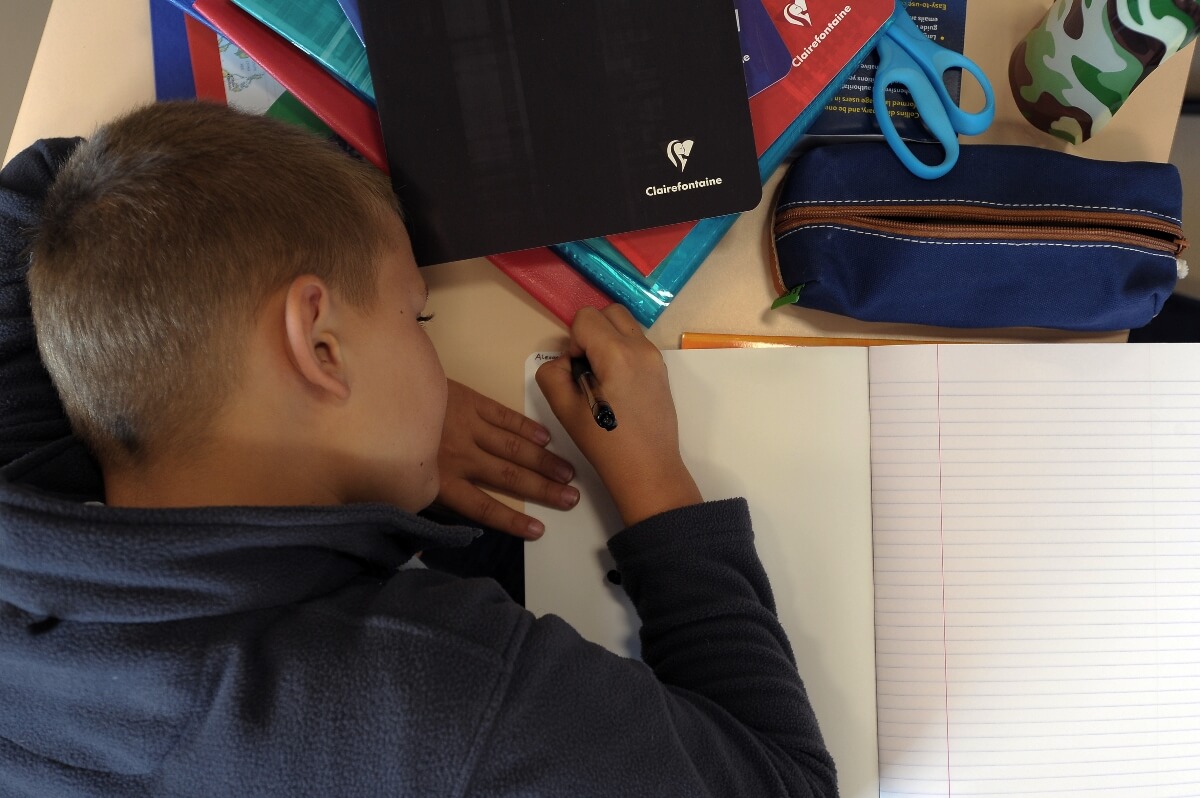
There is a period between your final exams and graduation when you take stock and think about what you want out of life.
This is certainly not the first time you’re asking yourself what to do after graduating, but it feels different now.
The after-graduating bit is imminent. You can see the finish line for your degree, and now you can look beyond that milestone.
QS Top Universities has a simple list of things you could do after graduation: Take a break and go travelling, continue your studies, find a graduate job, become an entrepreneur, or get yourself an internship.
However, the conversation is a lot more nuanced than that.
For some, there is a clear idea of what to do after graduating — the ideal job, financial goals, climbing up the career ladder, family — and all of it is vivid in their picture-perfect frame.
If this is you, you’ll likely need to keep in mind that allowing this picture to change is a (challenging) part of life.
If, however, for you, the picture of what to do after graduating is a blurry image with vague shapes and a lot of question marks, do not worry.
This is perfectly natural.
The New York Post reports a survey which found that 34% of respondents didn’t have a plan for after graduation, and 41% didn’t even have a job lined up.
Other research finds that 51% of students are not confident in their career path when they enrol in college.

In the movie “Eat, Pray, Love”, Julia Robert’s character travels to Italy, India and Bali on a journey of self-discovery. Source: Getty Images /AFP
What to do after graduating: Gap year?
Have you ever dreamt of taking a page from “Eat, Pray, Love” to travel across the world to find yourself?
The impulse is heavily documented across films and books because travel is a great way to broaden your perspective and help you formulate a clearer picture of your future.
However, not everyone has a money bag stashed away for such extensive travels.
When I first asked how do I find myself and what to do after graduating, it was after graduating from the International Baccalaureate Diploma Programme.
Many friends had already applied to the best universities across the world and were awaiting acceptance letters.
I had not made any applications because I had no idea what I wanted to do or who I wanted to be.
So, I took a gap year.
I did not have the funds to travel the world, so instead, I focused on things that would help me decide my future.
I interned at different companies and tried my hand at marketing, corporate communications and editorial work.
I also managed to do fulfilling things I never had the time for, like my Bharatanatyam (Indian classical dance) Arangetram (solo performance, which is like a graduation of sorts).
It was at this time that I discovered that I wanted to study English Literature, and I eventually ended up joining the University of Glasgow.
My story is just one of the many ways you can explore your options.
In fact, many people opt to do a gap year after graduating from university.
It’s a great way to learn the skills employers are looking for — and these experiences will boost your CV.
Research finds that in the US, 97% of students enjoyed increased maturity due to taking a gap year.
Also, 96% reported improved self-confidence and 84% acquired skills they believed would help them be successful in their future careers.

During your gap year, you can choose to volunteer for a cause close to your heart. Source: Luis Tato / AFP
The gap year can be spent doing many things. Here are some of our top suggestions for a gap year other than travel:
- Take up a new skill – If your degree was more focused on arts, perhaps pick up some marketing or coding skills. Opt for a creative painting class if you are mainly in the science stream.
- Volunteer – This could be for a cause close to your heart or in an industry that interests you. Either way, it helps build character and looks good on your job applications.
- Begin building a professional network – This could be by attending job fairs and talks or by interning. Meet people and ask them about their experiences to get a clearer picture of what certain professions entail.
- Pursue your passion projects – If you have a small business idea or something you really want to do, this is your chance to give it a try. No matter how it progresses, you will learn so much from the experience.
- Explore your options – What to do after graduating is hard to answer because there are so many options. Write the ones that sound interesting to you. Then as your year goes by, research into them and start crossing out the ones that don’t work.
What to do after graduating? Perhaps a gap year might help you develop a better idea of your future.
While for us older millennials these traditional pathways work, younger generations have been pushing to find more meaning in their life, even when it comes to deciding what to do after graduating.
What to do after graduating: What is everyone else doing?
WP Engine finds that Generation Z is the most entrepreneurial generation.
“Gen Z is an incredibly resourceful generation, and they rely heavily on the web as a primary source of education,” writes the number one platform for WordPress.
“This is a generation of self-starters — their favourite social platform is YouTube, where how-to videos are a huge category of interest — and their ‘can-do’ spirit is rooted in the wide expanse of information available on the web.”
While this generation has redefined how we view work-life balance and careers, many still opt for traditional jobs. This comes down to stability.
Research finds that 85% of 2023 grads said stability was important to them, up from 74% at the beginning of their senior year.
While labour is not part of their dream, Gen Z acknowledges that they need to work to survive. This does not mean that they are letting go of their values.

Sometimes, you have to think hard about who you are as a person to discover what to do after graduating. Source: Getty Images / AFP
LinkedIn’s Workforce Confidence Index indicates that the youngest professionals in the workforce are pushing hardest for personal growth in the right setting.
With this in mind, perhaps Vox’s post-graduation advice might be most suitable for you:
- Think about work as something that supports your life, not the other way around – Have a life outside of your career, one that fulfils you.
- Remember that your job will never love you back – Your company is not your friend, and it is certainly not your family.
- Consider how you’ll make a mark on the world – Consider what you hope to accomplish and what kind of difference you want to make.
- Have constant conversations about money – Ask for a raise, and talk to your colleagues about increments. It is not tacky; it’s tactful.
- Accept that plans will change – Change is a good thing.
- Continue your education at the University of You – Keep looking in and discovering things about yourself.
- Don’t compare yourself with others at work – You are your only competition.
- Set a budget immediately – Have a rainy day fund and look after your future.
- Break larger goals into smaller ones – It will stop you from feeling overwhelmed and make tasks more manageable.
It comes down to figuring out who you are and what you want. It will help to dig a little deeper about yourself as a person to evaluate what you want to do with your life.

Journaling can help you with self-reflection and exploring who you are. Source: Frederick Florin/AFP
How do I find myself?
Finding yourself can help you outline your post-graduation life.
There are many inexpensive ways to kickstart your journey of self-discovery. It is key to remember that this is deeply personal and can be different for each individual.
Healthline outlines some key steps to help you:
- Start by visualising your ideal self – Ask yourself what you want from life, what you regret, and where you see yourself in the next five or 10 years.
- Explore your passions – Turn to your interests and examine how they enrich your life.
- Try new things – Doing something totally different from your norm gets you out of your comfort zone and gives you a better idea of what excites you or what you don’t like.
- Evaluate your skills – Think about what you are naturally good at and hone those skills.
- Identify what you value about yourself – This will help you see what’s important to you and how you can build a future based on that.
- Ask yourself questions – Be honest about your answers. Ask things like why do I do the things I do, what drives me, and what am I missing.
- Learn something new – Learning is a lifelong process that can help you be a better you.
- Keep a journal – This is a great tool for self-reflection and keeping track of patterns.
- Talk to a therapist – Having a licensed professional go through all the things you are feeling and thinking with empathy and kindness can help with your process of self-discovery.
The Berkeley Well-Being Institute has a slightly different approach to finding yourself. Here are its seven steps:
- Get clear on why you feel lost in the first place
- Figure out what you really want
- Accept yourself to find yourself
- Identify negative self-talk to find yourself
- Celebrate your strengths to find yourself
- Express yourself to find yourself
- Show your vulnerability to find yourself







